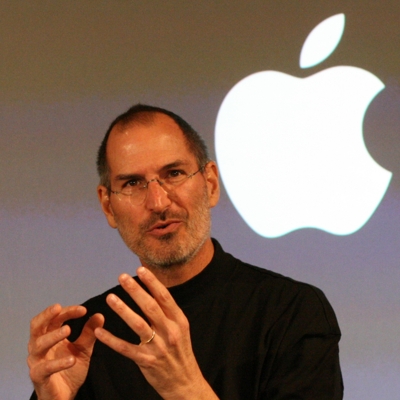I’m fascinated by the Kindle’s competition with the iPad — and Apple’s rival approach to the marketing of ebooks. For example, yesterday Apple released a quarterly report showing they’d set new records. Over 92 days, they sold 14.1 million iPhones, 9.05 million iPods, 3.89 million Mac computers, and 4.19 million iPads. Their stock hit an all-time high, giving them a market capitalization of nearly $300 billion. And yet even some of Apple biggest fans still seem disappointed by Apple’s effort to sell ebooks.
One site had even stronger words, calling Apple’s iBookstore “one big failure”. David Winograd has both a PhD and an MBA, and he writes for “The Unofficial Apple Weblog,” where he analyzed the surprisingly small selection of ebooks in Apple’s store. “At launch, it was reported that the iBookstore contained somewhere between 46,000 and 60,000 titles, 30,000 of which came from the Project Gutenberg library of free out-of-copyright books.” Eliminating those “brings the number of titles at launch…to a generous 30,000.” Amazon, meanwhile, boasts that its Kindle bookstore has “over 700,000 ebooks, newspapers, magazines and blogs” — so it seems safe to assume that counting ebooks alone would still give Amazon close to half a million choices.
I’m always curious how Amazon’s Kindle Store would compare to other online bookstores, but David Winograd actually performed some real-world research. “I did a search of the New York Times Best Seller List from last Sunday and found that three of the hardcover fiction titles and three non-fiction titles were missing from the iBookstore. Amazon had all of them except for [Jon Stewart’s] Earth (The Book), which has no electronic version…” And there was another big problem with the iBookstore. “Sometimes Apple came out more expensive while Amazon never did.”
This disparity leads the unofficial Apple blogger to his biggest complaint: “The iBookstore is full of holes.” He’d initially been excited about buying ebooks from Apple’s iBookstore, “but I became disappointed at the lack of availability and prices of what I wanted to read… unless Apple takes some giant steps to fix the things that are broken with the iBookstore, it will continue to be a dismal failure.” In August, one author even reported that he’d been selling 6,000 ebooks a month in Amazon’s Kindle store, versus just 100 per month in Apple’s iBookstore.
But to be fair, the iPad is changing reading in other ways — and it won at least one match-up against the Kindle in a small town of 60,000 people. In Northern California, their city council will vote today on whether to replace their bulky agenda packets with digital versions on an iPad! Yuba City “prints 20 full agenda packets for each meeting, creating an average of 68,000 pages per year,” according to a local newspaper. “Five electronic devices for council members, two for the city manager’s office and one for the city clerk would cost $5,240 with an expected annual savings of $2,200 in printing costs!”
They’d also considered delivering the council minutes to a Kindle, but felt it didn’t score as highly in usability, readability, and “available applications.” But it probably would still score higher in its selection of ebooks.
